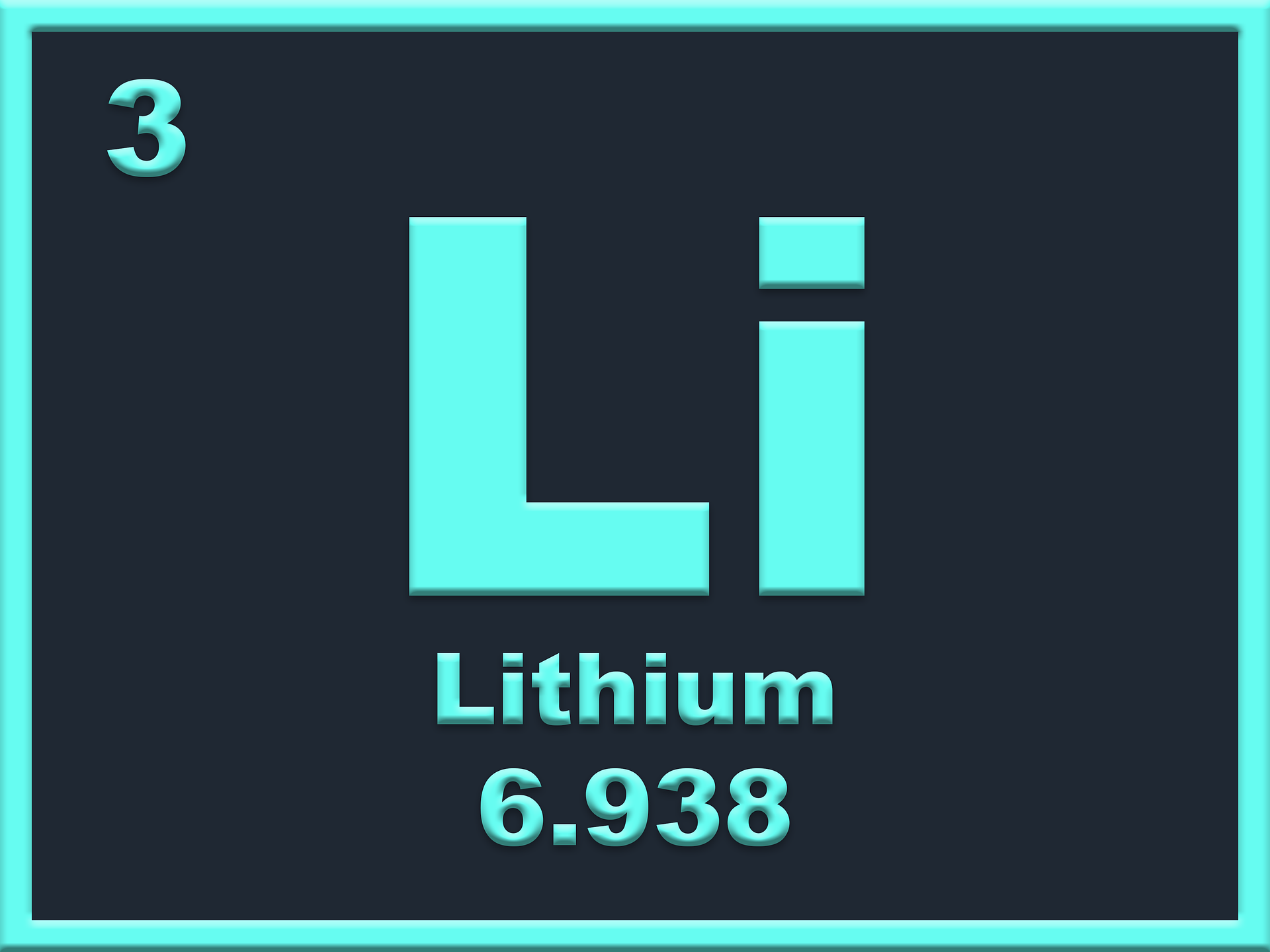 What is lithium orotate and how is it different from prescription lithium carbonate?
What is lithium orotate and how is it different from prescription lithium carbonate?
Let me start by saying that lithium orotate is NOT the same as the pharmaceutical lithium medication prescribed for bipolar disorder. Prescription lithium is actually lithium carbonate, a less bioavailable form of lithium that must be taken in significantly higher doses. While lithium carbonate requires patients to take hundreds of milligrams per dose, lithium orotate can be administered at between 5-20mg and have substantial positive effects without all of the negative side effects of lithium carbonate.
Side effects of lithium carbonate (not lithium orotate, the supplement discussed in this article) include:
- Dizziness
- Shakiness/tremors
- Increased thirst and urination
- Tiredness and/or drowsiness
- Weight gain
- Diarrhea/vomiting
- Trouble speaking
- Blurred vision or vision changes
- Joint pain and/or swelling
- Confusion
- Unsteady walk
- Seizures (in particularly severe cases)
- And more…
But again, lithium carbonate is very different in terms of its effects on the body in comparison with lithium orotate.
Most of these side effects are due to the fact that lithium orotate, which is a trace mineral that our bodies need in order to survive and to thrive, must be administered at comparatively high doses when it is synthesized by Big Pharma into a physiologically toxic form like lithium carbonate. If the synthetic, toxic form of lithium carbonate is not administered in high doses, it doesn’t do…anything–except poison the body. In contrast, lithium orotate can be administered at a lower, more reasonable dose, but because it’s bioavailable and it works naturally with the body. As a result, many of the same medicinal effects against mental illnesses like bipolar disorder can be achieved as with low doses of lithium orotate, versus the high, toxic doses of lithium carbonate. This means that lithium orotate is more effective and much safer than lithium carbonate when it is used to treat disease.
Lithium orotate also doesn’t produce any of the negative effects on the thyroid or gastrointestinal system that lithium carbonate can cause. While lithium carbonate can have severe and detrimental effects on the thyroid and digestive system when it is administered at a dose of 900 mg or more, lithium orotate doesn’t pose a threat to either the thyroid gland or the digestive system (in fact, it can be used therapeutically for thyroid or digestive disorders).
And, on top of all that, you can buy lithium orotate online or from a health store for an affordable price. No prescription needed.
Medicinal Applications of Lithium Orotate
Lithium orotate can be used therapeutically to treat a variety of different health problems, including the following (among others that are not listed here):- Lyme disease
- ADHD/ADD
- Behavioral issues, including aggression, neurosis, antisocial behavior, and violence
- Alcohol addiction, alcohol poisoning, drug addiction, pathological gambling, etc.
- Allergies and allergic arthritis
- Lou Gehrig's Disease / Amyotrophic lateral sclerosis (ALS)
- Alzheimer’s disease and Parkinson’s disease
- Anorexia nervosa and bulimia nervosa
- Ascites
- Asperger’s, autism, and related conditions
- Asthma
- Atherosclerosis
- Atypical psychosis
- Autoimmune disorders (including arthritis, systemic lupus erythematosus (SLE), Crohn’s disease, diabetes, encephalomyelitis, Felty’s syndrome, fibromyalgia, Guillain-Barre syndrome, hidradenitis suppurativa, Meniere’s disease, Morgellons disease, multiple sclerosis (MS), rheumatoid arthritis, Sjorgen’s syndrome, thrombocytopenia, and others)
- Chronic pain (sciatica, back pain, neck pain, etc.)
- Complex Regional Pain Syndrome / Reflex Sympathetic Dystrophy
- Bipolar disorder, borderline personality disorder, explosive disorder, obsessive-compulsive disorder (OCD), panic disorder, schizoaffective disorder, schizophrenia, Tourette’s syndrome, social anxiety/phobia, and other mental health disorders or conditions
- Brain damage
- Canavan’s disease
- Chronic fatigue
- Headaches and migraines
- Confusion
- Cotard’s syndrome
- Demyelinating diseases
- Depression, GAD (generalized anxiety disorder), irritability, and Tay-Sachs disease
- Depressed immune system
- Diarrhea/colitis
- Down’s syndrome
- DNA damage
- Duodenal ulcer
- Eclampsia
- Edema
- Eczema
- Epilepsy
- Fetal alcohol syndrome
- PTSD and PTSD flashbacks
- Forgetfulness
- Fractures and bones that won’t heal
- Fragile X syndrome
- GERD
- Glaucoma
- Gout
- Heart disease
- Heavy metal toxicity, herbicidal toxicity, mercury poisoning, radiation therapy damage/poisoning, etc.
- Hemochromatosis
- Hemolytic anemia
- Hepatitis C, cirrhosis, and some other liver problems
- Huntington’s disease
- Hyper IgE syndrome
- Hyperadrenalism and hypercortisolism
- Hyperthyroidism, lymphocytic thyroiditis, and other thyroid conditions
- Hypoparathyroidism
- Impulsivity
- Acute and chronic pathogenic infections (including infectious mononucleosis, chickenpox, HSV1/HSV2, shingles, Epstein-Barr virus, AIDS/HIV, prion diseases, viral lymphadenopathies, and others)
- Infertility
- Inflammatory bowel syndrome (IBS)
- Insomnia, nightmares, and other sleep disorders
- Ischemic heart disease
- Juvenile convulsive disease
- Klein-Levin syndrome
- Kleptomania, trichotillomania, and other manias
- Metabolic syndrome
- Motor neuron disease
- Myotonic dystrophy
- Neutropenia
- Diabetic neuropathy
- Organic brain syndrome
- Osteoarthritis
- Osteoporosis
- Pain syndromes
- Paralysis
- Periodic limb movement
- Peripheral nerve pain
- Pheochromocytosis
- Postpartum psychosis
- Premature ejaculation
- Prostaglandin diseases
- Prostatitis
- Reproductive disorders
- Restless leg syndrome
- Rhett syndrome
- Self-mutilation
- Skin disorders
- Spinal amyotrophy
- Spinal cord injury
- Stiff person syndrome
- Stroke
- Sydenham’s chorea
- Tardive dyskinesia
- Tinnitus
- TMJ
- Ulcers
- Vaccine injury
- Vascular disease
- Xenophobia
Lithium Orotate: Natural Treatment for Lyme Disease
Lithium orotate has been studied as a treatment for various pathogenic diseases, including Lyme disease. Not only does it have anti-pathogen properties, it also can be helpful in alleviating the symptoms of chronic Lyme disease during the healing process.Lithium orotate protects the nervous system and the brain, and can cross the blood-brain barrier to access the brain and nervous system directly (note that lithium carbonate can’t do this, and that this action is part of what makes lithium orotate more bioavailable and more effective than lithium carbonate). In terms of Lyme disease, this is extremely important since the Borrelia can (and does) take up residence in the nervous system and in the brain, leading to neurological issues. Lithium orotate can treat nervous system issues by stimulating the production of natural detoxification enzymes in the brain like glutathione as well as through other powerful mechanisms of action. Glutathione is able to target pathogens, and it is also able to help remove toxins and waste.
In the brain and nervous system, lithium orotate is also valuable for neurological Lyme disease treatment since it improves the communication between nerve cells, likely leading to decreased neurological symptoms. Long term use of lithium orotate can stimulate the hippocampus to produce stem cells. Then, these stem cells can be converted to neurons. Thus, besides increasing communication, lithium orotate stimulates the production of new neurons in the brain. In a brain and nervous system that may have suffered damage due to Lyme disease, this can be a vital part of a full recovery.
Lithium orotate can also be an important part of detoxification in that it directly targets poisons and toxins, including heavy metals and chemicals, as well as toxic substances like arachidonic acid, a major cause of nervous system inflammation. Reduction of arachidonic acid in particular can reduce pain in general, specifically leading to a reduction of headaches and migraines.
Like cesium and rubidium, other related elements in the same column on the Periodic Table, lithium is also a powerful alkalizing agent in the body which is why this medicine is listed under “pH Therapies”. Cesium specifically has been studied as a cure for cancer and other diseases since even alkalinity alone is often enough to kill pathogens or reverse a disease cycle, but unfortunately, cesium isn’t incredibly easy to access in the US or in other western countries, and it isn’t a medicine most people can administer on themselves or loved ones at home. In contrast, lithium orotate is much more accessible and affordable, and in regard to alkalization of the body, it can offer many of the same benefits. Read more here about how pH therapy was used by Keith Brewer, a microbiologist, to cure cancer within 48 hours to fully understand how pH therapy works against disease. And in this article, we talk about how pH therapy is intimately connected to and useful as an adjunct to Reactive Oxygen Species medicine therapies like Chlorine Dioxide Solution / Miracle Mineral Supplement and Methylene Blue therapy.
Most pathogens, including the Borrelia bacteria, can’t survive in an alkaline environment. They prefer slightly more acidic living conditions. When a person eats a healthy diet and takes care of their health, the pH level of the human body increases to around 7.4 on average. It becomes slightly alkaline (7 is considered neutral on the pH scale). However, stress, poor diet, sickness, and other factors can contribute to the body becoming more acidic (a pH below 7), and an increased likelihood of infection or a flare-up of an existing, dormant infection. In the treatment of Lyme disease, making the body alkaline and therefore inhospitable to Borrelia can have an the effect of reversing the infection, and pH therapy can also make Reactive Oxygen Species medicines more effective (CDS/MMS, for example, becomes more powerful as a person’s body becomes more alkaline).
How to Take Lithium Orotate as a Treatment for Lyme Disease
Lithium orotate can be taken in a dose between 5-20 mg per day on average although it is possible to take up to 80 mg daily if you’re trying to alkalize your body. Always start with the lower dose of 5 mg per day to start so you can understand how it feels to take lithium orotate, then increase the dose over the course of a week or to two weeks.For Lyme disease, consider taking 5mg three times per day (for a total dose of 15mg per day). Lithium makes some people feel tired, and if this is the case for you, consider planning your three doses for times of the day when it’s okay if you’re a little sleepy (such as first thing after you wake up, when you eat dinner, and when you go to bed; don’t take it in the middle of the day while working if it makes you tired, for example).
After 1 month of taking lithium orotate, reduce the dose to 10mg per day (taken as 5mg twice a day). Carefully track your symptoms each day before and after starting lithium, and if you notice a recurrence of symptoms after reducing your dose the first time, increase the dose back to 15mg per day for another month and then try again. If your symptoms don’t return, stay at the 10mg dose for another 30 days. After 30 days at 10mg, reduce the dose to 5mg daily and again see if you notice any symptoms returning. If you don’t have any symptom recurrence, continue with the 5mg per day dose for as long as you feel that it benefits you (consider this 5mg per day dose a “maintenance” dose).
 Pure Encapsulations Lithium (Orotate) 1 mg | Support for Calmness and Behavior | 90 Capsules
Pure Encapsulations Lithium (Orotate) 1 mg | Support for Calmness and Behavior | 90 Capsules
Children, pregnant and breastfeeding women, and the elderly can also use lithium orotate safely as a treatment for Lyme disease. Children as young as 2 years old have taken lithium orotate safely. The important thing when it comes to giving children lithium orotate is that their kidneys are functioning properly, and that their creatinine clearance is normal. Note, however, that children should, of course, receive a lower dose than an adult. Start with ½ of a 5mg lithium capsule or tablet at first in an older child, or even less than this for a younger child, and increase the dose slowly.
Contraindications for Lithium Orotate Supplementation
People who are on the list below should not exceed a daily dose of 10mg per day of lithium orotate. These individuals who meet the criteria below can still take supplemental lithium, however they are advised to obtain the supervision of a professional and to take a lower dose.- Women who are pregnant or nursing
- People with late- or end-stage kidney disease
- Infants, young children, or elderly patients
- Previous lithium-cased kidney problems
- People with Brugada syndrome (a heart condition)
- Patients with cystic fibrosis
- People taking some pharmaceutical medications
- People currently taking pharmaceutical lithium carbonate (DO NOT combine lithium carbonate with lithium orotate; people taking lithium carbonate are already likely near a toxic level of lithium administration, and lithium orotate supplementation may push them over the edge toward lithium toxicity)
Note that some people may be particularly sensitive to lithium, and may have a stronger response than most even with a lower dose. These individuals are the most likely to experience any side effects. This is rare though and only occurs in about 1% of the population
Side Effects of Lithium Orotate Supplementation
Lithium orotate causes very few side effects, especially when it’s compared with lithium carbonate. However, some people may have some mild side effects. The most common of these I’ve listed below:- Headaches
- Insomnia
- Nausea
- Dizziness
- Abdominal pain or gastrointestinal discomfort

Cure Lyme Disease: Scientifically Proven Treatments for Lyme Disease & Co-Infections - BUY NOW!
Related Posts: https://alivenhealthy.com/2022/07/17/bee-venom-therapy-for-lyme-disease-how-apitherapy-can-cure-chronic-borrelia-burgdorferi-infection/ https://alivenhealthy.com/2022/07/16/10574/ https://alivenhealthy.com/2022/07/20/rife-therapy-cure-for-lyme-disease-toxoplasmosis-liver-flukes-tapeworm-neurocysticercosis-and-other-parasite-infections/ https://alivenhealthy.com/2022/07/20/pulsed-electro-magnetic-frequencies-pemf-lyme-disease-treatment/ https://alivenhealthy.com/2022/07/19/kambo-frog-venom-cure-for-lyme-disease/ https://alivenhealthy.com/2022/07/16/lyme-disease-treatment-protocols-with-chlorine-dioxide-solution-cds-miracle-mineral-solution-mms/ https://alivenhealthy.com/2022/07/16/herbal-lyme-disease-cures-japanese-knotweed-reynoutria-japonica-for-treatment-of-lyme-disease-in-humans/ https://alivenhealthy.com/2022/07/19/connect-the-nutrient-dots-understand-to-use-cds-mms-and-nutrition-to-cure-lyme-disease-autoimmune-disease-and-parasite-infection/
Resources:

 Alcohol Addiction Demystified: The Science of Alcohol Addiction and How to Overcome It At Home - BUY HERE!
Alcohol Addiction Demystified: The Science of Alcohol Addiction and How to Overcome It At Home - BUY HERE! KAL Lithium Orotate 5 milligrams | Low Serving Of Chelated Lithium Orotate For Bioavailability and Mood Support | In Organic Rice Bran Extract Base | 120 VegCaps
KAL Lithium Orotate 5 milligrams | Low Serving Of Chelated Lithium Orotate For Bioavailability and Mood Support | In Organic Rice Bran Extract Base | 120 VegCaps


















